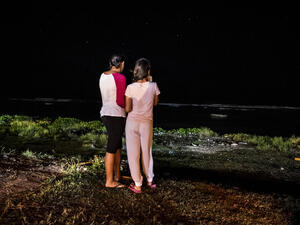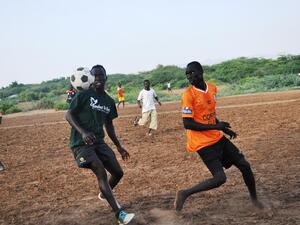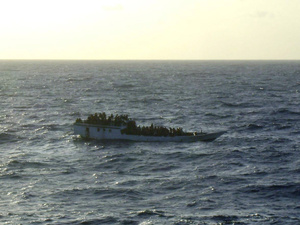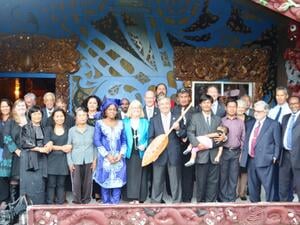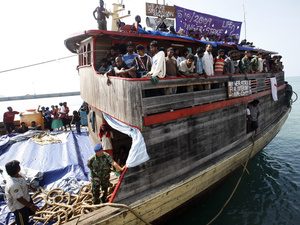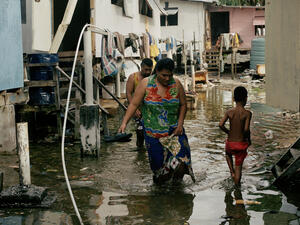UNHCR warns Australia-Cambodia agreement on refugee relocation could set worrying precedent
UNHCR warns Australia-Cambodia agreement on refugee relocation could set worrying precedent
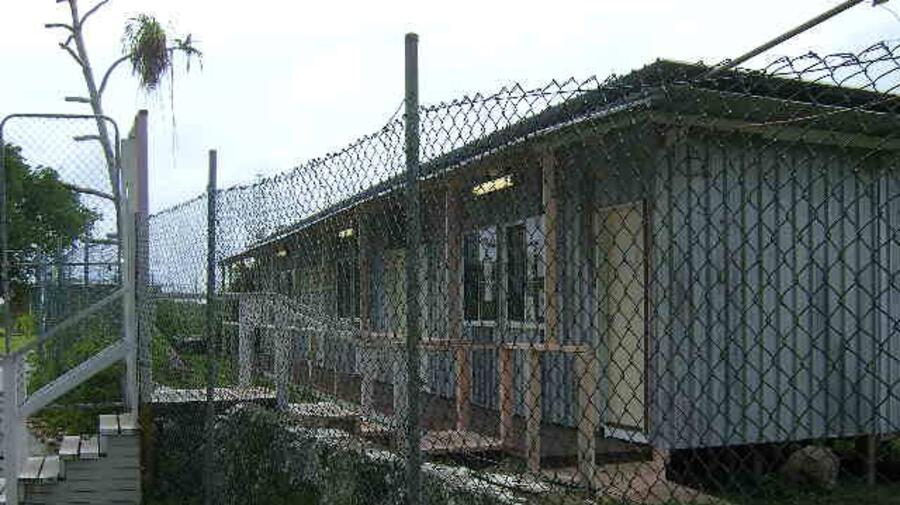
A spartan social centre on Nauru, where conditions for asylum-seekers have been criticised by UNHCR.
GENEVA, September 26 (UNHCR) - The UN refugee agency has voiced deep concern about an agreement signed on Friday under which Australia will relocate refugees currently being held on the Pacific island of Nauru to Cambodia, saying the plan sets a disturbing precedent.
The arrangement involves recognised refugees who had originally sought Australia's protection and were instead forcibly transferred to Nauru for an assessment of their need for protection, in conditions UNHCR has found to be harmful.
Under the agreement, people who are recognized as refugees in Nauru will be offered permanent settlement in Cambodia and are barred from settlement in Australia.
"This is a worrying departure from international norms. We are seeing record forced displacement globally, with 87 per cent of refugees now being hosted in developing countries. It's crucial that countries do not shift their refugee responsibilities elsewhere," said UN High Commissioner for Refugees António Guterres. "International responsibility sharing is the basis on which the whole global refugee system works. I hope that the Australian government will reconsider its approach."
UNHCR has consistently advocated for asylum-seekers to have their claims assessed and to benefit from protection in the territory of the State where they arrive, or which has jurisdiction over them.
"Refugees are persons who are fleeing persecution or the life-threatening effects of armed conflict. They are entitled to better treatment than being shipped from one country to the next," Guterres added.
While UNHCR recognizes the challenges of people moving by sea in the region, it believes that solutions lie in broad-based regional cooperation, in which all States play their part.
As at 31 August 2014, there was a total of 1,084 people on Manus Island and 1,233 people in Nauru. Cambodia currently hosts 70 refugees and 20 asylum-seekers.


